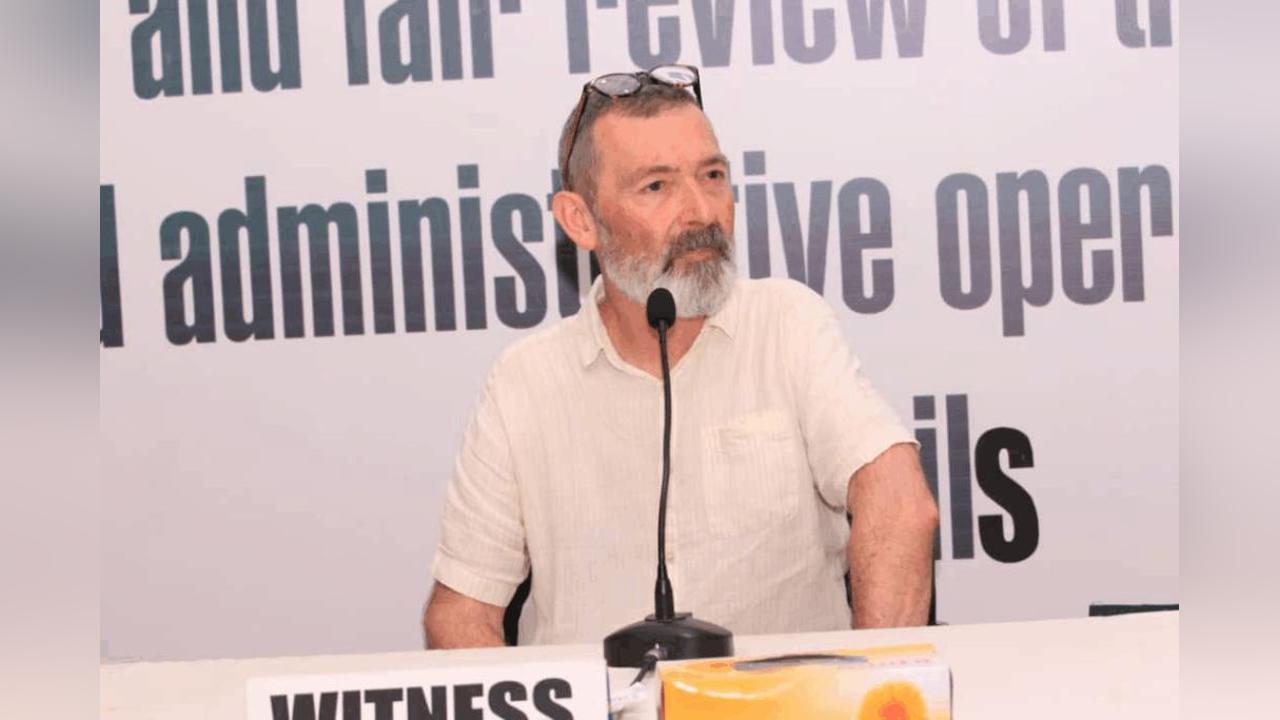Africa-Press – Gambia. Peter Vanslambrouck, the Project Coordinator of the Banjul City Council (BCC) Ostend Project, appeared on Tuesday before the Local Government Commission of Inquiry to provide testimony regarding the €3.1 million initiative jointly funded by the European Union and the City of Ostend.
In his appearance, Vanslambrouck outlined the project’s origins and structure. He explained that a concept note was submitted to the EU at the end of 2018, followed by stakeholder consultations in Banjul in 2019. The EU subsequently approved the grant in June 2019, and the project officially commenced in March 2020.
According to Vanslambrouck, the initiative comprises five core components: capacity building for the Banjul City Council, waste management, urban greening (including several sub-components), the rehabilitation of the former Crab Island Basic School, and a health-related component.He stated that the EU contributed €3 million, while the City of Ostend committed €150,000, and Banjul’s contribution stood at €7,805. However, he noted that Ostend ultimately contributed more than its initial pledge, especially after the project was extended by two years without additional EU funding.
When asked about the exact amount Ostend added, Vanslambrouck said he would need to consult the financial records and was instructed to furnish the commission with those documents.
Under questioning from Lead Counsel, Vanslambrouck confirmed that the project initially operated through an account at BISC Bank before transitioning to Ecobank, a move he attributed to more favorable exchange rates between the Euro and the Dalasi. He confirmed that the accounts were under BCC’s control.
“How many accounts does the project have?” Lead Counsel asked.
“We started with BISC Bank, and then there was a decision made by the team to switch to Eco Bank, and I assumed this was related to a better rate from EURO to Dalasi,” The Witness said.
The lead counsel inquired whether the accounts were solely managed by BCC, to which the witness responded affirmatively.
“Were there any form of approval that is required from BCC if they are to make withdrawals and expenditures towards the project, either from you or any other at the Ostend link?” Lead Counsel asked.
Asked whether BCC required approval from Ostend for expenditures, Vanslambrouck said initially no such approval was necessary. However, this changed following disagreements over spending priorities. He cited an example where BCC allocated project funds to assist flood victims in Tobacco Road—an action he said fell outside the EU project’s scope and prompted the introduction of approval procedures.
“Because we did not always agree on the way some expenditures were made. Like when there was flooding in Tobacco Road in Banjul, there was a decision made within BCC to support the victims. For us, it was not really part of the EU project, so for us, it was difficult to allocate these funds in that direction,” the witness said.
The lead counsel asked the witness if he was aware that the project was required to follow procurement regulations in its expenditures. The witness responded that he was aware and believed the procurement process had been properly followed.
The lead counsel then questioned, “Were you aware that many expenditures were made without adhering to procurement guidelines?” The witness replied, “No.”Do you have a list of all procurements conducted? The lead counsel asked.
“I think I know what kind of things were subject to procurement; I think yes,” the witness responded.
The lead counsel asked the witness if he had received any report related to procurement activities.
In response, the witness stated that he believes most of their expenditures above a certain threshold were carried out in accordance with GPPA regulations.
“But do you have a procurement list?” The Lead counsel asked. “I assume there is, but I was not the project coordinator,” the witness responded.
“There was a time when the steering committee granted themselves loans from the project funds, wasn’t there?” the lead counsel asked.
The witness responded that he was not aware of the loans at the time they were issued and only learned about them later from a colleague. He further clarified that such loans were not permissible under EU funding regulations.
The commission then requested that he submit the project’s audit report.
The Chairperson of the Commission, Jainaba Bah, asked the witness if, based on his evaluation, he would consider the project a success.
“I think we created a lot of successes, and I think we also have quite some failures,” the witness replied.
For More News And Analysis About Gambia Follow Africa-Press






